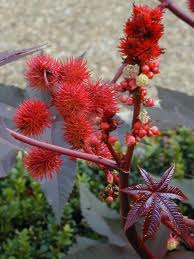Midlife Health – The Eyes Have It!
Last weekend I attended an all-day lecture by Dr. Norman Shealy. His discussion of energy medicine and alternative healing remedies was most informative. One of the topics that peaked my interest was using castor oil for cataracts. My mother had cataracts removed many years ago and I have a number of friends who’ve recently had surgery for the same reason. If this is an issue for you, the following tips might be helpful.
The growth of cataracts is an issue many people face as they age. Cataracts are a clouding of the natural lens of the eye. The lens is responsible for focusing light and producing clear images. The larger the cataracts become, the more fuzzy the vision. The process is begun by poor circulation that prevents the eye from ridding itself of “debris.” Surgery may be the only resolution for a late-stage cataract but castor oil may help you resolve the issue in its early stages.
Castor oil was apparently used by the Egyptians for eye irritations, the medical intuitive Edgar Cayce recommended it for cataracts and Dr Shealy also endorses it.
The directions for use are to simply put one drop of the pure oil (make sure the oil is free of any contaminants) in each eye at bedtime. If you’ve ever used castor oil for any reason you’ll know why you want to do it at bedtime. The oil is very sticky and you’ll certainly have cloudy vision for about half an hour. Over time the oil gradually dissolves the cataract.
To prevent cataracts, you might want to increase your intake of lutein and zeaxanthin, two of the most abundant carotenoids in our diet. A new study from Finish researchers suggests that increased levels of lutein and zeaxanthin may reduce the risk of cataracts by about 40%. Increasing evidence supports the role of these two carotenoids for eye health, which also includes decreasing your odds of being afflicted with age-related macular degeneration (AMD).
These carotenoids are available as supplements but if you want to go the natural route, here are foods that contain lutein and/or zeaxanthin:
- kale
- collard greens
- spinach
- swiss chard
- mustard greens
- parsley
- eggs
- beet greens
- okra
- red pepper
- dill
- romaine lettuce
- endive
- celery
- scallions
- leeks
- broccoli
- leaf lettuce
- squash
- green peas
- carrots
- artichoke
- pumpkin
- dates
- grapes
- oranges
Another recommendation for eye health is Vitamin D3. A recent study from the Institute of Ophthalmology at University College London showed that after taking vitamin D3 for only 6 weeks, older mice showed improved vision as well as reductions in inflammation of the retina and levels of amyloid beta accumulation, a hallmark of aging. This suggests that vitamin D3 may be helpful in preventing AMD, the most common cause of blindness in elderly people.
So if you are looking to improve the health of your eyes, consider trying a more natural path before undergoing surgery.

